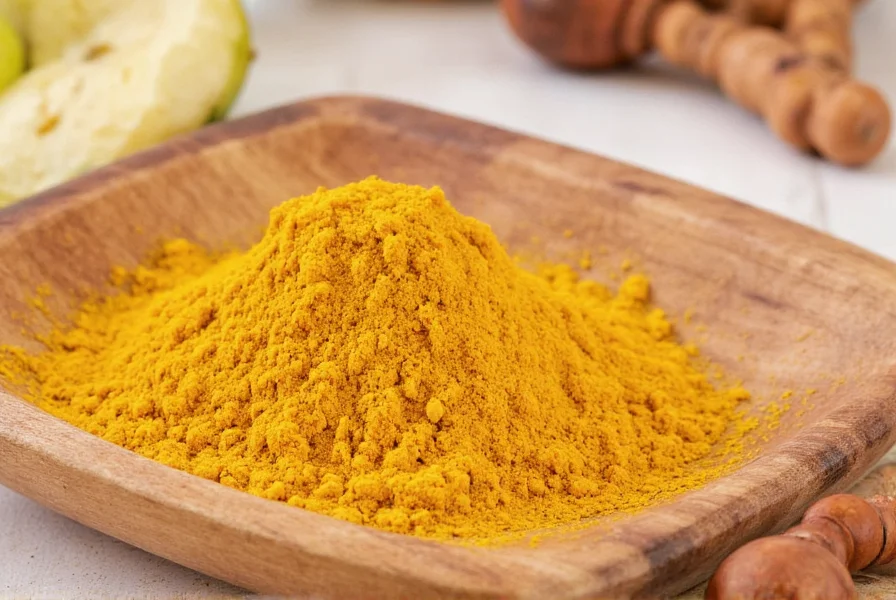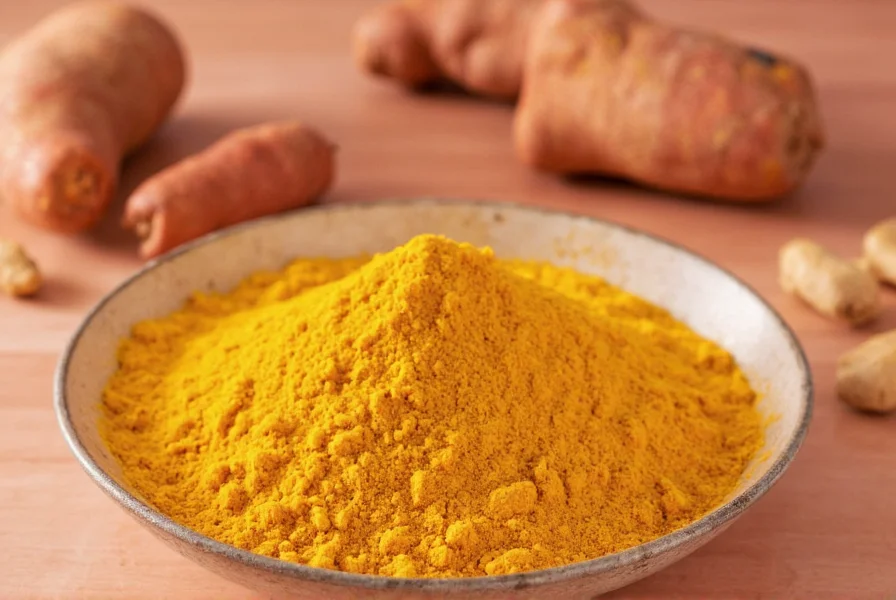For centuries, turmeric has been used in traditional medicine systems for various health purposes, including supporting liver function. Modern research is now examining whether these traditional uses have scientific merit, particularly regarding liver health. This article examines what current evidence reveals about turmeric's relationship with liver function, separating established facts from speculation.
The Science Behind Turmeric and Liver Function
Turmeric (Curcuma longa) contains curcuminoids, with curcumin being the most studied active compound. Curcumin demonstrates potent anti-inflammatory and antioxidant properties that may benefit liver health. The liver, responsible for detoxification and metabolism, is particularly vulnerable to oxidative stress and inflammation—two processes that curcumin may help mitigate.
Research indicates curcumin may influence several biological pathways relevant to liver health:
| Mechanism | Potential Liver Benefit | Research Status |
|---|---|---|
| Antioxidant activity | Reduces oxidative stress in liver tissue | Strong evidence in animal studies, limited human trials |
| Anti-inflammatory effects | May decrease liver inflammation markers | Moderate evidence in human studies |
| Lipid metabolism regulation | Potential improvement in fatty liver conditions | Promising preliminary human research |
| Detoxification enzyme modulation | May support natural liver detox processes | Primarily theoretical, limited direct evidence |
Current Research on Turmeric Liver Benefits
Several studies have investigated turmeric's potential effects on specific liver conditions. A 2020 systematic review published in Nutrients analyzed multiple clinical trials examining curcumin's effects on non-alcoholic fatty liver disease (NAFLD). The review found that curcumin supplementation showed promise in reducing liver fat accumulation and improving liver enzyme levels, though researchers noted the need for larger, longer-term studies.
Another area of interest is turmeric's potential role in supporting liver health during medication use. Some medications can cause liver stress, and preliminary research suggests curcumin might offer protective effects. However, this same property raises concerns about potential interactions with certain medications metabolized by the liver.

Important Considerations for Turmeric Liver Support
While turmeric shows potential benefits for liver health, several important factors require consideration:
Bioavailability Challenges
Curcumin has notoriously poor bioavailability—meaning the body doesn't absorb it well. Many studies use enhanced formulations (like those combined with piperine from black pepper) to improve absorption. When evaluating research on turmeric liver effects, consider whether the study used standard turmeric or an enhanced formulation.
Dosage Considerations
Research on turmeric for liver health typically uses doses ranging from 500-2,000 mg of curcumin daily. However, optimal dosage for liver support remains unclear. Higher doses don't necessarily provide greater benefits and may increase risk of adverse effects.
Research Limitations
Most compelling evidence comes from animal studies or small human trials. Large-scale, long-term human studies specifically examining turmeric liver effects are limited. Much of the current understanding represents promising preliminary findings rather than conclusive evidence.
Potential Risks and Safety Concerns
While turmeric is generally safe when consumed in food amounts, higher supplemental doses used for potential liver benefits may pose risks:
- Liver sensitivity: Rare cases of turmeric-induced liver injury have been reported, particularly with high-dose supplements
- Medication interactions: Turmeric may interact with blood thinners, diabetes medications, and certain chemotherapy drugs
- Pre-existing conditions: Individuals with gallbladder issues or bile duct obstruction should exercise caution
A 2021 review in Food and Chemical Toxicology noted that while turmeric is generally recognized as safe, isolated cases of hepatotoxicity (liver damage) have been associated with turmeric supplements, particularly in individuals with pre-existing liver conditions or when taken in very high doses.
Practical Guidance for Turmeric Use
If considering turmeric for potential liver health benefits, follow these evidence-based recommendations:
- Consult your healthcare provider before starting turmeric supplements, especially if you have liver conditions or take medications
- Start with culinary amounts—incorporate turmeric into your diet through cooking before considering supplements
- Choose quality supplements if needed, looking for products with enhanced bioavailability and third-party testing
- Monitor for adverse effects such as digestive upset or potential signs of liver issues (unusual fatigue, dark urine, jaundice)
- Manage expectations—turmeric is not a cure for liver disease and should complement, not replace, conventional medical care
Conclusion
Current evidence suggests turmeric, particularly curcumin, may offer supportive benefits for liver health through its anti-inflammatory and antioxidant properties. Research shows promise for conditions like non-alcoholic fatty liver disease, though larger human studies are needed. Importantly, turmeric supplements are not a substitute for medical treatment of liver conditions. The relationship between turmeric liver effects appears complex—potentially beneficial in moderate amounts for some individuals while posing risks in others. As with any supplement, informed, cautious use under healthcare provider guidance represents the safest approach to exploring turmeric's potential liver benefits.
Frequently Asked Questions
Can turmeric reverse fatty liver disease?
Current research doesn't support that turmeric can reverse fatty liver disease. Some studies show it may help reduce liver fat accumulation and improve liver enzyme levels in non-alcoholic fatty liver disease (NAFLD), but it should be considered a potential complementary approach, not a standalone treatment. Lifestyle changes including diet and exercise remain the primary recommended interventions for NAFLD.
How much turmeric should I take for liver health?
There's no established dosage of turmeric specifically for liver health. Research studies have used varying amounts, typically 500-2,000 mg of curcumin daily. However, optimal dosage depends on individual factors including health status and potential medication interactions. Culinary use (about 1-3 grams of turmeric powder daily) is generally considered safe. For supplements, consult with a healthcare provider to determine an appropriate amount for your specific situation.
Can turmeric damage your liver?
While turmeric is generally safe when consumed in food amounts, rare cases of turmeric-induced liver injury have been reported with high-dose supplements. Most cases occurred with prolonged use of high-dose curcumin supplements (typically above 1,000 mg daily). Individuals with pre-existing liver conditions may be at higher risk. If you experience symptoms like jaundice, dark urine, or abdominal pain while taking turmeric supplements, discontinue use and consult a healthcare provider immediately.
Does turmeric help with liver detoxification?
Turmeric may support some aspects of liver detoxification through its antioxidant properties and potential effects on detoxification enzymes. However, the concept of "detoxing" the liver with supplements is largely a marketing myth. The liver naturally detoxifies the body, and no supplement can significantly enhance this process beyond supporting overall liver health. Turmeric's potential benefits relate more to reducing inflammation and oxidative stress in the liver rather than accelerating detoxification.
Can I take turmeric if I have elevated liver enzymes?
If you have elevated liver enzymes, consult your healthcare provider before taking turmeric supplements. While turmeric may potentially help normalize liver enzymes in some cases (particularly related to fatty liver), it could interact with the underlying cause of your elevated enzymes or with medications you're taking. Your healthcare provider can help determine whether turmeric is appropriate for your specific situation based on the cause of your elevated enzymes and your overall health profile.











 浙公网安备
33010002000092号
浙公网安备
33010002000092号 浙B2-20120091-4
浙B2-20120091-4